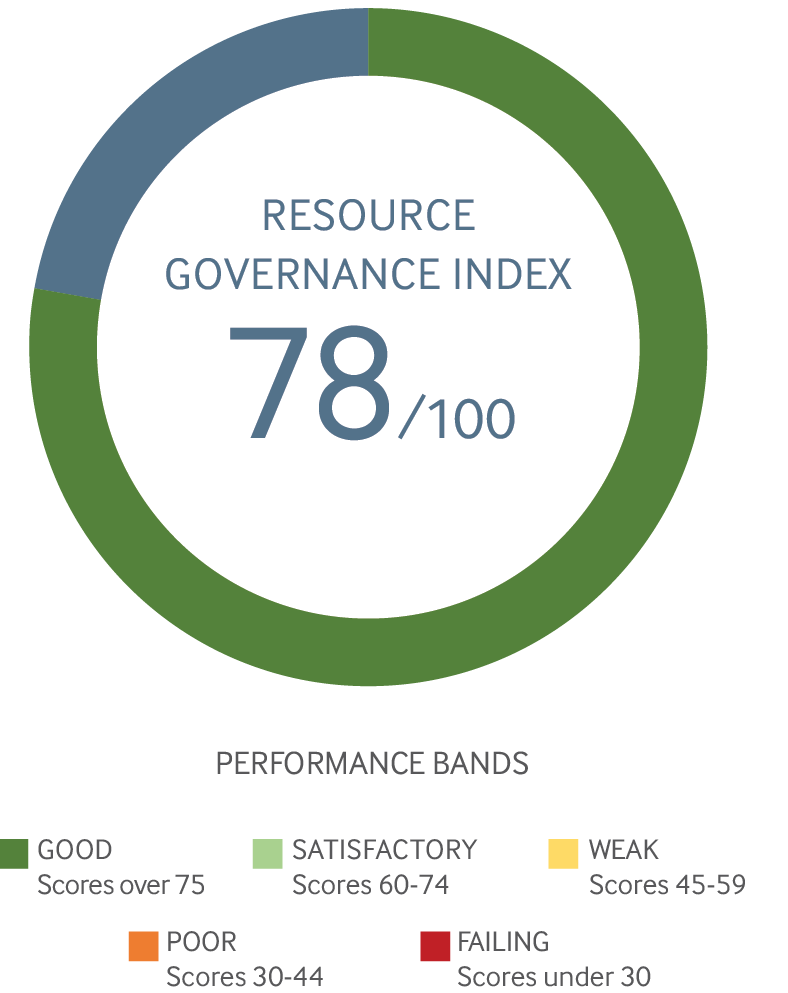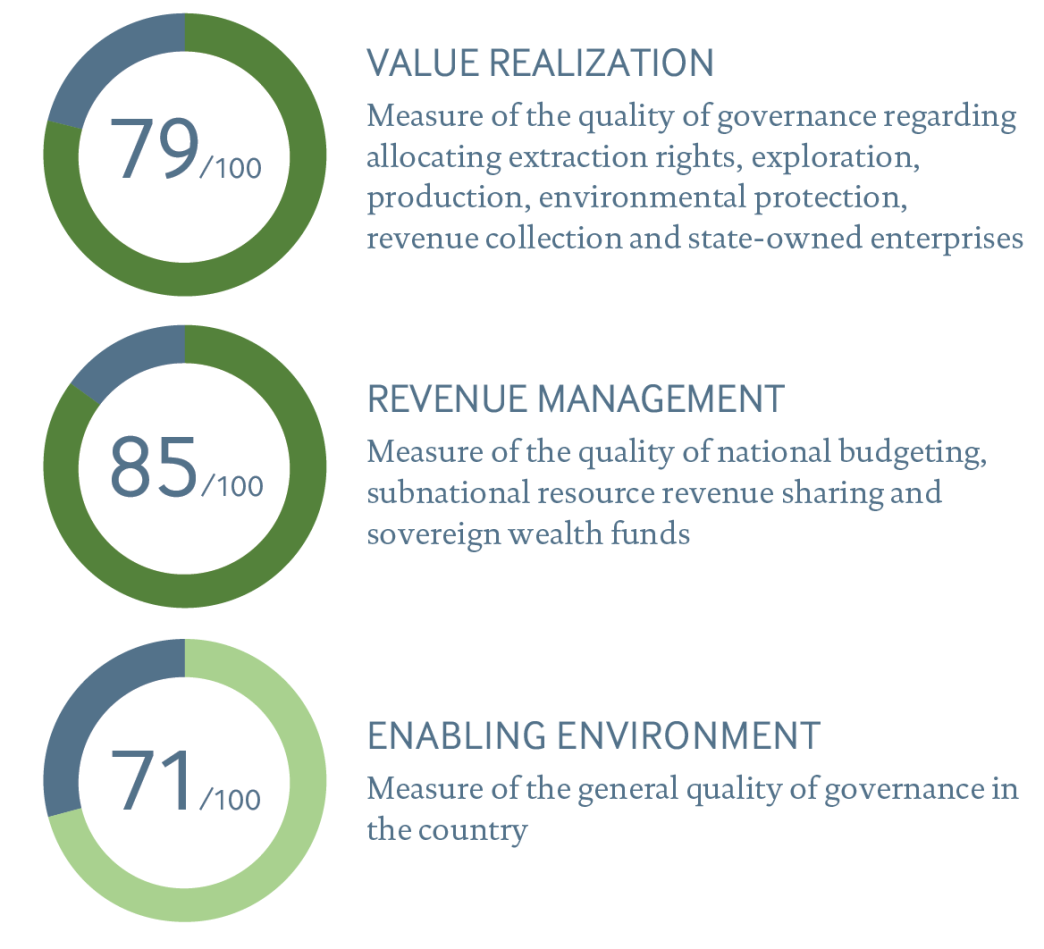
2021 Resource Governance Index: Ghana (Oil and Gas)
Read the press release.
View the launch event »
Ghana’s oil and gas sector scored 78 out of 100 points in the 2021 Resource Governance Index (RGI), improving by 11 points since the 2017 RGI. Strengthened resource governance is underpinned by improvements across both the index’s value realization and revenue management components.
- Ghana’s oil and gas sector’s move into the “good” performance band in the 2021 RGI is driven by improvements in the governance of licensing and national budgeting along with continued improvements of the state-owned Ghana National Petroleum Company (GNPC) and the Ghana Stabilization Fund, the country’s sovereign wealth fund.
- Adoption of new laws regarding licensing and national budgeting strengthened Ghana’s extractives legal framework and helped drive the 2021 RGI score increase.
- Both law and practice scores increased, but the difference between them widens from -7 to -22, signaling a worrying “implementation gap.”
- GNPC improved its performance through commodity sales disclosures, but areas for future improvement include the timeliness of disclosures and aspects of corporate governance.
- The Ghana Stabilization Fund scored a full 100 points on governance, owing to new disclosures of assets and asset classes.
- Ghana’s oil and gas sector outperformed the older gold mining sector owing to enhanced transparency and accountability in the oil and gas sector legislative framework.
Recommendations
- The Ministry of Energy and the Petroleum Commission should push for enhanced disclosures with regard to licensing, beneficial ownership, environmental and social impact assessments as well as asset declaration by public officials. Enhanced monitoring and compliance by these state agencies in collaboration with civil society organizations are needed to ensure adherence to established laws.
- Various Ghanaian governmental agencies and ministries should adhere to open data principles in line with commitments made through Ghana’s Open Government Partnership National Action Plan.
- The Ghana National Petroleum Corporation should immediately restart the publication and disclosures of its annual reports and consolidated financial statements, to ensure transparency and accountability of its management of Ghana’s oil and gas resources.
- The Ministries of Finance and Energy along with other key governmental actors should collaborate with civil society organizations, and the Ghana EITI to ensure that Ghana meets the standard requirements of the Extractive Industries Transparency Initiative.
- The Ministry of Energy and the Ghana National Petroleum Corporation must acknowledge that the energy transition will require bold policies and choices to ensure the continued viability of the oil and gas industry. All stakeholders across the Ghanaian oil and gas sector must be cognizant of the role that hydrocarbons play in the climate crisis.


